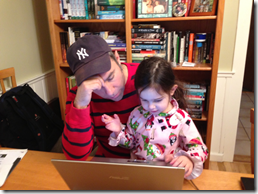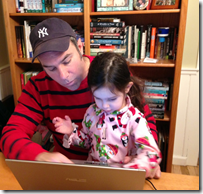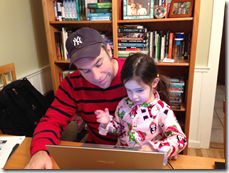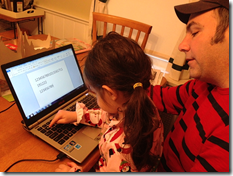Teachers: Stop assigning word problems. It's a problem.
/My daughter was working on her math homework last night.
Side note: First graders should not have homework. The research is exceedingly clear and unequivocal in this regard. Homework is meaningless and possibly detrimental to students until at least middle school. Many elementary schools have already abandoned homework for this very reason. As a teacher, I assign homework because it is required, but if given the freedom to do what is right, I would not. Instead, I try to find ways to make my homework meaningful and fun whenever possible.
Anyway...
Clara had completed several problems when she moaned, "Why does math have so many problems? I don't like problems."
And she was right.
Why do we refer to equations as problems?
Why do we teach students to solve word problems?
No one likes problems. Clara is right.
Imagine what might happen if I started handing books to kids and said, "Here. You'll love this problem. Get reading."
Or if I gave my students a map and said, "I have a problem for you today. Label all the countries of Europe on this map."
Or if I told students, "Today we begin our science fair projects. This will be an enormous, high stakes, three-month problem for you and possibly your parents, too, depending on their inability to detach themselves from your long term projects."
These are not problems.
Mathematical equations are not problems.
- Bed bugs are a problem.
- Drug addiction is a problem.
- Pretending that your bigotry is based upon Scripture is a problem.
- The great Pacific garbage patch is a problem.
- New York Jets fandom is a problem.
- Designer logos are a problem.
- Humble bragging is a problem.
- My inability to hit the driver more than 175 yards is a problem.
- Institutions like private schools that perpetuate the achievement economic are a problem.
- My daughter's refusal to put away her markers is a problem.
But the addition "problems" that my daughter was solving?
Not problems. Equations.
Beginning in September, I will cease referring to anything in mathematics as a problem.
Multiplication problems will become equations.
Word problems involving trains traveling at different speeds in different directions or boxes filled with varying amounts of widgets will no longer be referred to as problems. They will become mathematical situations (unless I think of something better).
No longer will my students think of math as a subject filled with problems. They have enough problems in their lives already. They don't need any more.
Will this make my students suddenly love math? Embrace it with enthusiasm and vigor?
I don't think so. Some will still love math. Others will not. I'll still work like hell to get them all to enjoy solving equations and understanding how numbers work.
But removing the word "problem" from my vernacular will make me feel better about talking about math, and perhaps over time, their opinions will shift ever so slightly.
Either way, referring to mathematical equations and mathematical situations as problems is a problem.
And It only took me 18 years of teaching for me to realize this.

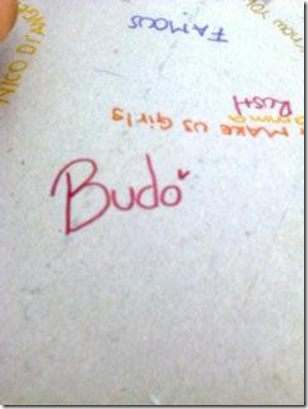

![image_thumb[1] image_thumb[1]](http://static1.squarespace.com/static/54f7c017e4b0ceb22a706c44/550daa85e4b0884f201017c0/550dab80e4b0884f2010364a/1426959232760/image_thumb1_thumb1.png?format=original)
![image_thumb[2] image_thumb[2]](http://static1.squarespace.com/static/54f7c017e4b0ceb22a706c44/550daa85e4b0884f201017c0/550dab80e4b0884f20103650/1426959232801/image_thumb2_thumb1.png?format=original)
